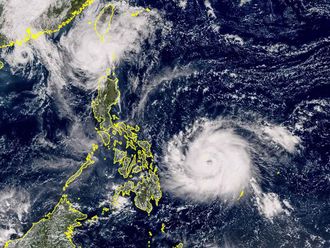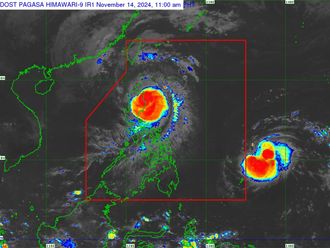Manila: Philippine Red Cross Chairman Richard Gordon opposed calls to declare areas hit by measles outbreak as calamity zones as he warned local officials against making money out of peoples miseries.
“This is the election period, and that may be another excuse for officials to spend money ... What is important is that we show that we’re doing something to address the problem. What is important here is a notice to all to catch up with our immunisation programme,” Gordon said in a statement issued on Wednesday.
Just last week, the Department of Health (DOH) declared a measles outbreak in Metro Manila and subsequently declared a “red alert” outbreak in the regions of Luzon and parts of the Visayas. Based on data from the DOH-Epidemiology Bureau, from Jan. 1 to Feb. 9 this year, a total of 4,302 measles cases have been reported, with 70 deaths.
Regions with high reported cases were the National Capital Region (Metro Manila) with 1,296 cases and 18 deaths, the Cavite-Laguna-Batangas-Rizal-Quezon region with 1,086 cases and 25 deaths, Central Luzon with 481 cases with three deaths, Western Visayas with 212 cases and four deaths and Northern Mindanao with 189 cases and five deaths.
Gordon, who is also an incumbent Senator but is not running for re-election in the midterm polls scheduled in May 13, 2019 as he is still serving his six year term, said that some politicians could exploit the measles outbreak to make money.
Declaring a certain province or municipality under a state of calamity allows local officials to access calamity funds.
“There’s no need to create a national emergency here. We’re not in danger of a pandemic or an epidemic right now. It’s manageable, therefore what you need right now is a call to arms to make sure that everybody is conscious of the need to immunise and that kids must be immunised,” he said.
Vaccine scare
The Philippines has been trying to shake off what the World Health Organisation (WHO) described as “loss of confidence on vaccines.”
“The causes of measles outbreak involved a number of factors or elements. Loss of public confidence and trust in vaccines in the immunisation programme brought about by the Dengvaxia controversy has been documented as one of many factors that contributed to vaccine hesitancy in the country,” WHO said.
Mothers had become hesitant to have their children given immunisation shots due partly to the controversy over Dengvaxia, a vaccine for dengue.
Aside from the Dengvaxia scare, an October 2018 WHO study in certain areas of Metro Manila also pointed out the issue of lack of time by parents to have their children immunised.
According to Health Secretary Francisco Duque, the government is resolved to meet its immunisation targets this time around and is actively campaigning for parents to have their children given shots for vaccine preventable diseases.
Duque said that side from village level medical services, certain municipalities such as those in Laguna, are making available malls for the immunisation programme.











